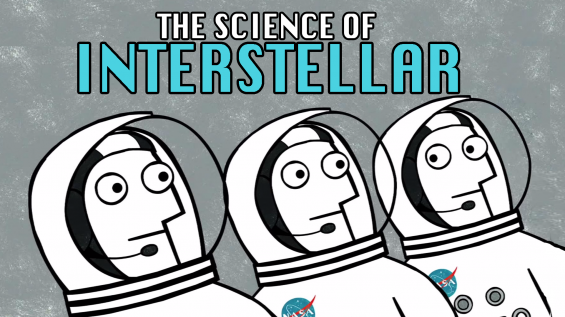The science of Interstellar: 5 TED-Ed Lessons to help you understand the film
By Alex Rosenthal on November 13, 2014 in TED-Ed Lessons
Thanks to physicist Kip Thorne’s influence, the latest space-travel film Interstellar features some remarkably scientifically accurate depictions of topics that have previously been mangled by the Hollywood treatment. Here, we wrangled together five TED-Ed Lessons that can serve as a (spoiler-filled) crash course on some of the trickier science in the film.
Time Dilation
Why do 7 years pass on Earth for every hour spent on the water planet orbiting Gargantua? How does Murph wind up older than her father? Why does Paul Rudd never seem to age? (OK, that last one has nothing to do with Interstellar, but we have our suspicions that they’re related…)
5-dimensional Beings
What does it actually mean for a being to be 5 dimensional? What is the tesseract that Coop falls into inside the Black Hole’s event horizon?
*Note: This lesson references 4 dimensional life forms, while Interstellar talks about 5 dimensional beings. The reason for the difference is that this lesson is just looking at geometric dimensions, whereas Insterstellar is counting 4 spatial dimensions plus 1 time dimension.
Black Holes and Gravity
Why is there a secret locked inside Gargantua? How are gravity and spacetime related? Why does Sandra Bullock hate space so much? (OK, OK, different movie again, sorry!)
Tidal Waves
We suspect that the colossal waves on the water planet have something to do with tidal forces caused by Gargantua’s gravitational pull, similar to how the moon causes the Earth’s tides. The film isn’t entirely clear on that point, but for an explanation of tsunamis on Earth, look no further.
Newton’s Third Law
It isn’t often that a protagonist will cite a foundational law of physics when he heroically sacrifices himself. But when he or she does, it makes us feel all warm and fuzzy inside. This video will help you brush up on Newton’s Laws for the next time you need to justify an epic life decision.
Tags: